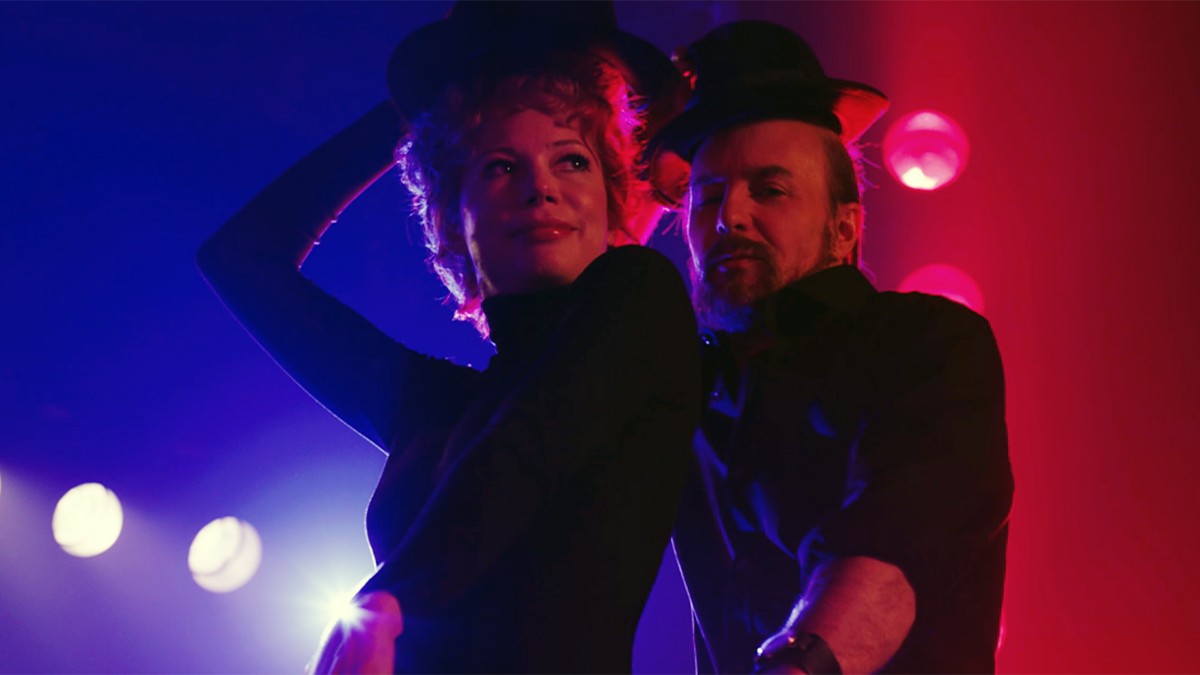Here’s something most people don’t know about me, unless they’ve ever sung karaoke with me or asked me what my major hobbies were from age 15-20 — I am a massive theatre nerd. I wrote my college admissions essay on a musical. I cried my eyes out in a Broadway playhouse not two weeks ago. I am going to continue spelling “theatre” the pretentious, British way for the rest of this review, unless my editor changes it before publication. [Ed. Note: I’ll allow it.] I, therefore, bring some requisite expertise — and, admittedly, bias — to this analysis of FX’s new star-studded miniseries, “Fosse/Verdon.”
If you’re a drama geek, it’s hard to find TV shows or movies that are really for you. Works that aren’t just gussied-up interpretations from stage to screen, but which star real Broadway-caliber actors and honor the gritty DIY-itude of the stage. “Fosse/Verdon” is a true treat for theatre nerds made by theatre nerds. (Hello, showrunner/”Dear Evan Hansen” scribe Steven Levenson and episode director/”Hamilton” director Thomas Kail.) Not only does the show reevaluate one of theatre’s greatest names, the troubled and troubling choreographer Bob Fosse (Sam Rockwell), it does so with requisite panache: soundstage scenery drops away to reveal theatrical staging, every performance is deliciously ostentatious, and there are So. Many. Jazz hands.
Perhaps best of all, while lazy screenwriters might have made the entire series about Fosse, “Fosse/Verdon” is a truly thoughtful look at the parasitic relationship between male ego and female genius. The series’ eight episodes, of which critics were shown five, tracks Bob Fosse’s career from its peak (the “Cabaret“-gilded early ’70s) to its chaotic unraveling. By his side, all the while, is Gwen Verdon (Michelle Williams), an aging Broadway ingenue who became Bob’s third wife in 1960 and gave birth to his only child, Nicole (Juliet Brett). Desperate to return to the stage and forever living in her philandering husband’s shadow, Gwen is tender, scheming — and, the show points out, hugely responsible for her husband’s success. From the moment they meet, Gwen is literally two dance steps ahead of Bob, feeding his creative fire like a can of gasoline. Throughout the series, Bob tries to leech off of other artistic women (mainly dancers in his shows), but he keeps circling back to Gwen. The two are almost as addicted to each other as Fosse is to alcohol and barbiturates.
It’s a compelling character sketch, and a refreshingly unflattering one for a male protagonist that could have easily been afforded anti-hero glory. In the era of #MeToo, it’s impossible to see Fosse, who comes off as a kind of ’70s Broadway Harvey Weinstein, as anything other than lecherous. It’s no surprise to see Sam Rockwell, king of the dirtbag oeuvre, inhabit Fosse’s skin so naturally. However, it’s Michelle Williams who shines brightest with her extraordinarily winning performance as Gwen Verdon.
Williams, who is best known for her understated work on small, independent projects like “Blue Valentine” and “My Week with Marilyn,” took a delightfully unprecedented stab at character acting in the otherwise unwatchable Amy Schumer rom-com “I Feel Pretty.” She approaches the role of Verdon with the same campy fervor, not trying to squeeze into the Broadway icon’s real-life mold so much as kick-ball-change it full of new, delicious contours. Williams’s Verdon is as varied as she is gravel-voiced. Throughout the course of the show, Williams plays Verdon across decades, moods, stage roles, and motivations like a tennis champion returning volleys. If this show were entirely about Fosse, it would fail. Because of Williams’s Verdon, it soars.
That said, “Fosse/Verdon” isn’t exactly perfect. Its broad temporal brush leads to several moments of chronological whiplash — something that the show’s infuriatingly ubiquitous intertitles do little to solve. It (bizarrely, given its debut on FX) assumes its viewers will have a competent history of 1970s Broadway. Yet even if it doesn’t sound like your jam, I encourage you to give it a shot.
From winsome performances to dynamic staging, “Fosse/Verdon” dazzles as much as it dithers. Will a suicide-encouraging, “Pippin”-influenced musical number work for this show? (Kinda!) Is it hilarious or oddly affecting to see Bob Fosse haunted by the ghost of his tap-dancing youth? (Both!) No matter how you answer those questions for yourself, half the intrigue of watching this show comes from seeing what formal experiment its creators will try from one episode to the next. [B+]





